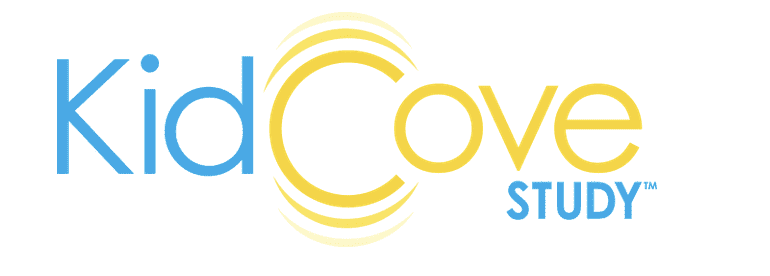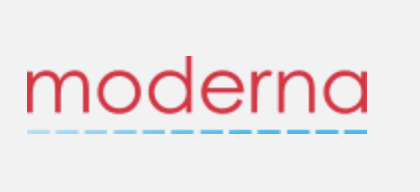Search Posts
Recent Posts
- Rhode Island Weather for June 5, 2025 – Jack Donnelly June 5, 2025
- RI Veterans: Did you know? 05.06.25 (Rental help, events, resources) – John A. Cianci June 5, 2025
- We Cook! Mill’s Tavern Rosemary-Lemon Statler Chicken, Yukon Golds, Haricot Vert and Dijon Demi June 5, 2025
- ICE arrests nearly 1,500 in Massachusetts. First part of “Operation Patriot” – Nantucket Current June 5, 2025
- Rhode Island Weather for June 4, 2025 – Jack Donnelly June 4, 2025
Categories
Subscribe!
Thanks for subscribing! Please check your email for further instructions.

Moderna COVID vaccine should be coming soon for children 6 months to 6 years
Moderna, Inc. announced Wednesday that positive interim data from the Phase 2/3 KidCOVE study of the Moderna COVID-19 vaccine in children 6 months to under 2 years and 2 years to under 6 years of age.
This interim analysis showed a robust neutralizing antibody response in both age groups after a 25 µg two-dose primary series of mRNA-1273 along with a favorable safety profile. Based on these data, Moderna will submit a request for authorization of a 25 μg two-dose primary series of mRNA-1273 for children 6 months to under 6 years of age to the U.S. Food and Drug Administration (FDA), European Medicines Agency (EMA) and other global regulators in the coming weeks.
“We believe these latest results from the KidCOVE study are good news for parents of children under 6 years of age. We now have clinical data on the performance of our vaccine from infants six months of age through older adults,” said Stéphane Bancel, Chief Executive Officer of Moderna. “Given the need for a vaccine against COVID-19 in infants and young children we are working with the U.S. FDA and regulators globally to submit these data as soon as possible. Additionally, after consultation with the U.S. FDA we have initiated a submission for emergency use authorization of our COVID-19 vaccine in children ages 6 to 11 years old and are updating our submission to the FDA for emergency use authorization of mRNA-1273 in adolescents ages 12 to 17 years with additional follow-up data. We remain committed to helping to end the COVID-19 pandemic with a vaccine for children of all ages.”

KidCOVE is a randomized, observer-blind, placebo-controlled study to evaluate the safety, tolerability, and immunogenicity of two doses of mRNA-1273 given to healthy children 28 days apart. The study population is divided into three age groups (6 to <12 years, 2 to <6 years, and 6 months to <2 years). In the study, efficacy could be evaluated if enough cases accrued. Overall, the Company has enrolled approximately 11,700 pediatric participants in the U.S. and Canada into the trial including approximately 4,200 children ages 2 to under 6 years and approximately 2,500 children ages 6 months to under 2 years.
Today, Moderna is reporting on the 6 months to under 2 years and 2 years to under 6 years age groups. Approximately 6,700 participants 6 months to under 6 years of age were enrolled into this age cohort.
In both age groups, the tolerability profile was generally consistent with that observed in children age 6 to under 12, in adolescents age 12 to 17, and in adults. The majority of adverse events were mild or moderate and were more frequently reported after dose two. Rates of fever greater than 38°C among vaccine recipients were consistent with other commonly used and recommended pediatric vaccines and were 17.0% and 14.6% in the 6 months to under two years and the two to under six years age groups, compared to 23.9% in the six to under 12 years age group, which received a 50 µg two-dose primary series. Fever greater than 40°C was seen in only a few children (0.2% in each age group). No study pause rules were met, and no new safety concerns were identified in either age group. No deaths, no myocarditis or pericarditis, and no multisystem inflammatory syndrome in children (MIS-C) were reported
In both age groups, two doses of 25 µg provided similar immunogenicity to the 100 µg two-dose primary series in adults ages 18 to 25 years, meeting the non-inferiority criteria and immunobridging[1], and indicating that the benefit of mRNA-1273 conferred to adults ages 18 to 25 are also conferred to children and infants as young as 6 months. SARS-Cov-2-neutralizing antibody geometric mean ratio (GMR) comparing the response in children 6 months to under 2 years to the response in young adults from the Phase 3 COVE study was 1.3 (95% Cl: 1.1, 1.5) and was 1.0 (95% Cl: 0.9, 1.2) for the 2 to under 6 years age group. This also predicts protection from COVID-19 and severe COVID-19 disease down to 6 months of age.
The Omicron SARS-CoV-2 variant predominated in the U.S. during the KidCOVE study in these younger age groups. The secondary endpoint of vaccine efficacy confirms statistically significant, but lower efficacy against COVID-19 infection as expected during the Omicron wave and consistent with adult observational data. Using the Phase 3 COVE study COVID-19 definition, vaccine efficacy in children 6 months to 2 years was 43.7% and vaccine efficacy was 37.5% in the 2 to under 6 years age group. In this case, statistically significant is defined as a lower bound on the 95% confidence interval which is greater than 0. The majority of cases were mild, and no severe COVID-19 disease was observed in either age group. The absence of any severe disease, hospitalization or death in the study precludes the assessment of vaccine efficacy against these endpoints.
Similar to adults, Moderna is preparing to evaluate the potential of a booster dose for all pediatric populations, including those age 6 months to under 6 years, 6 to under 12 years, and adolescents. The Company is evaluating booster doses of mRNA-1273 and its bivalent booster candidate (mRNA-1273.214), which includes Omicron variant booster and mRNA-1273.
Safety data continue to accrue, and the study continues to be monitored by an independent safety monitoring committee. All participants will be monitored for 12 months after their second injection to assess long-term protection and safety. These data are subject to change based on ongoing data collection. The Company plans to submit these data to a peer-reviewed publication.
Moderna previously reported positive topline data from the 6 to under 12 year old cohort, indicating a strong immune response one month after the second dose. The co-primary immunogenicity endpoints in this age group were met. Today, Moderna also announced that the Company has initiated the submission process with the U.S. FDA for an emergency use authorization of a 50 μg two-dose primary series of mRNA-1273 for the 6 to under 12 years cohort. Regulators in Australia, Canada and the European Union have authorized the use of mRNA-1273 in this age group. Moderna will update its submission to the U.S. FDA for the emergency use of a 100 μg two-dose primary series in adolescents ages 12 to under 18 years. Moderna has received regulatory authorizations for the 100 µg two-dose primary series in adolescents 12 to 17 years of age in the European Union, UK, Australia, Canada, Switzerland and other countries.
The KidCOVE study is being conducted in collaboration with the National Institute of Allergy and Infectious Diseases (NIAID), part of the National Institutes of Health (NIH) and the Biomedical Advanced Research and Development Authority (BARDA), part of the Office of the Assistant Secretary for Preparedness and Response at the U.S. Department of Health and Human Services. The ClinicalTrials.gov identifier is NCT04796896.
BARDA, part of ASPR within the U.S. HHS is supporting the continued research and development of the Company’s COVID-19 vaccine development efforts with federal funding under contract no. 75A50120C00034. BARDA is reimbursing Moderna for 100 percent of the allowable costs incurred by the Company for conducting the program described in the BARDA contract. The U.S. government has agreed to purchase supply of mRNA-1273 under U.S. Department of Defense contract no. W911QY-20-C-0100.

About Moderna
In over 10 years since its inception, Moderna has transformed from a research-stage company advancing programs in the field of messenger RNA (mRNA), to an enterprise with a diverse clinical portfolio of vaccines and therapeutics across seven modalities, a broad intellectual property portfolio in areas including mRNA and lipid nanoparticle formulation, and an integrated manufacturing plant that allows for rapid clinical and commercial production at scale. Moderna maintains alliances with a broad range of domestic and overseas government and commercial collaborators, which has allowed for the pursuit of both groundbreaking science and rapid scaling of manufacturing. Most recently, Moderna’s capabilities have come together to allow the authorized use and approval of one of the earliest and most effective vaccines against the COVID-19 pandemic.
Moderna’s mRNA platform builds on continuous advances in basic and applied mRNA science, delivery technology and manufacturing, and has allowed the development of therapeutics and vaccines for infectious diseases, immuno-oncology, rare diseases, cardiovascular diseases and auto-immune diseases. Moderna has been named a top biopharmaceutical employer by Science for the past seven years. To learn more, visit www.modernatx.com.
